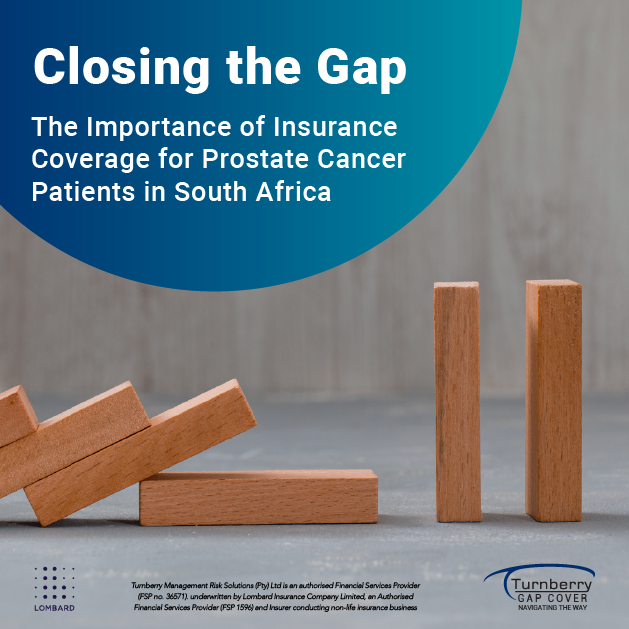
Lifestyle and Tech – 13th November 2024
The month of November has become widely recognised as Movember, a movement dedicated to raising awareness about men’s health issues, particularly prostate and testicular cancer. Since its inception in 2003, Movember has encouraged men to grow moustaches to spark conversations and raise funds for critical health initiatives. Over the years, this movement has supported more than 1,300 men’s health projects globally, contributing significantly to research and awareness.
Prostate cancer is the most common cancer among men both locally and globally, and it carries a lifetime risk of 1 in 15 in South Africa, according to the most recent National Cancer Registry. Testicular cancer, though less common, has seen a rise in younger men. Despite this, many men remain unaware of their risk and the need for regular screenings, as well as of the costs involved in treatment. Even with medical aid, shortfalls can and do occur, and having gap cover in place is an essential safeguard in protecting physical and financial wellbeing.
Early detection is always key
Statistics on the prevalence of prostate cancer vary, but some sources state that it accounts for up to a quarter of all male cancers in South Africa, with the average age of diagnosis at 65 years. Testicular cancer is rarer but is cited as the most common male cancer in adolescents and men up to the age of 35. While older men are more susceptible to prostate cancer, and testicular cancer is more prevalent in younger men, both types can and do affect men of all ages.
Be aware, be prepared
Prostate and testicular cancer are typically classified as Prescribed Minimum Benefit (PMB) conditions in South Africa, meaning medical aids must cover treatment according to the standard protocols offered in state hospitals. However, this does not cover the full range of treatment options, such as biological cancer drugs, which can lead to medical expense shortfalls. Men may face out-of-pocket expenses for surgeries, therapies, and other next-generation treatments that are not fully covered by their medical aid. Co-payments for certain treatments and penalties for using non-Designated Service Providers (DSPs) can also leave patients with significant bills, even though treatment is covered under PMBs. This is where gap cover becomes essential.
Prostate cancer claims at Turnberry account for 7% of all cancer-related claims, underscoring the financial burden faced by men diagnosed with this disease. In 2022 alone, Turnberry reported high-value claims for prostate cancer-related shortfalls, including a gap of R29,530 from a total bill of R84,889 and another claim of R54,555 from a total of R84,899. Without gap cover, these shortfalls would have become the responsibility of the patients, threatening their financial well-being long after their treatment was completed.
The financial strain of cancer treatment can add unnecessary stress to an already challenging situation. Gap cover serves as a financial safeguard, ensuring that men receive the best possible care without being burdened by medical expense shortfalls. It allows patients to focus on recovery rather than worry about the costs of life-saving treatments. By covering out-of-pocket expenses that medical aids do not, gap cover offers men and their families much-needed peace of mind.
Medical aid schemes vary widely in their coverage and cancer benefit structures. Likewise, different gap cover policies offer varying degrees of protection. It is therefore critical for men to consult their brokers or financial advisors to ensure they have the most suitable gap cover policy to complement their medical aid.
Beyond Movember
Movember is more than a campaign; it is a global call to action for men to take control of their health. As awareness around male cancers grows, so too must the understanding of the financial implications of treatment. In South Africa, where medical aids may not cover all costs, gap cover is vital in bridging the gap and ensuring men receive the care they need without the burden of financial strain. By fostering greater awareness of both the health risks and the financial tools available, men can better navigate the challenges of a cancer diagnosis, prioritising their health and well-being without sacrificing their financial stability.
Tony Singleton, CEO at Turnberry Management Risk Solutions
https://getcovered.turnberry.co.za/app/1
What is Gap Cover?
https://getcovered.turnberry.co.za/app/1
Client Testimonials
Thanks I am grateful for all you are doing for me as regard the chemo and cancer treatment.
Cancer Lump Sum Payment has helped us hugely with all the incidental costs. Gap Cover is a ‘must have’. Christopher Cradock
Doctors charged above medical aid rates which required upfront co-payments. These co-payments were submitted to Turnberry for processing. My claim form was completed and submitted to my Broker on 29 June 2021. Payment of my 1st diagnosis of cancer was paid on 16 July 2021. On 9 July 2021, I received an email to advise that my claim was submitted to an assessor to conclude the assessment. Your timeous and prompt responses and feedback has assured me that Turnberry provides the best value for money which has benefitted me during my claim experience. I believe Turnberry provide a prompt, fast and efficient customer service and satisfaction. I would recommend Gap Cover which helps with the additional medical expenses. It covers the shortfall where Doctors and Hospitals charge above medical aid rate. The up-front co-payments for certain procedures and admission can be claimed from Gap Cover if you have the right benefit product in place. Excellent service. Highly recommended. Vijay Pillay
Turnberry’s Gap Cover Insurance assisted our family tremendously. My husband was diagnosed with cancer and the once off payment helped a lot with extra medical expenses.
The claiming process was easy and painless. The claim was finalised quickly. This was a huge relief as, having been diagnosed with cancer, it was one less thing to worry about. Make sure that you have GAP cover. It could be the difference between being able to pay all your medical accounts and having to go into debt to cover the unexpected costs.
